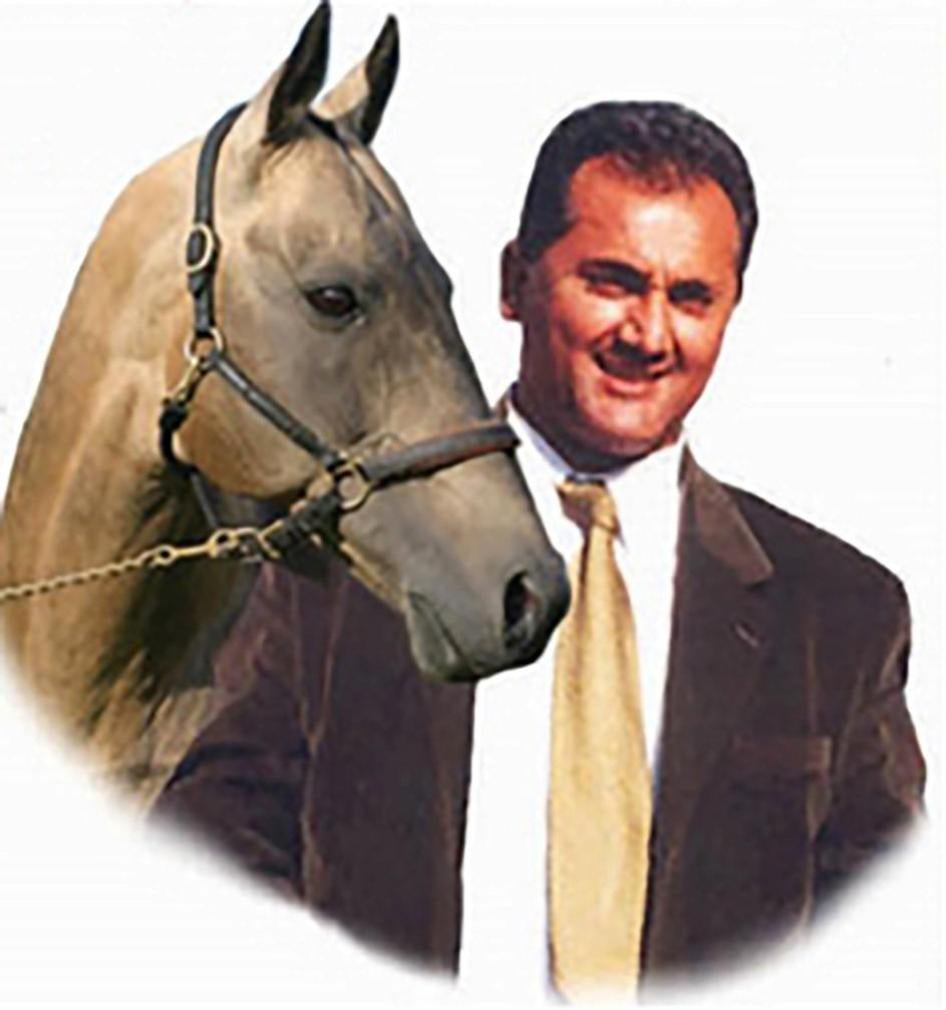(Berlin) – Turkmen authorities prevented a prominent horse breeding expert who fell out of favor with the government from leaving the country on August 5, 2015, Human Rights Watch said today.
It was the second time in nine months that the authorities stopped Geldy Kyarizov and his family from leaving the country. Two of his family members were also targets of an alleged attempted hit-and-run on the morning of August 5. The Turkmen government should immediately allow Kyarizov and his family members to travel abroad so that, among other things, he can get needed medical treatment.
“Turkmenistan is one of the few countries in the world that arbitrarily bars people whom the government doesn’t trust from leaving the country,” said Rachel Denber, deputy Europe and Central Asia director at Human Rights Watch. “The government is blatantly violating Kyarizov’s and his family’s right to freedom of movement.”
As Kyarizov, his 14-year-old daughter, Sofia, and his sister-in-law, Elena Serebryannik, approached passport control at the Ashgabat airport on the evening of August 5 to board a flight to Moscow, an official approached them. “Why are you here?” the official asked, a family member told Human Rights Watch. “You already tried [to leave the country] last December. You’re not allowed [to leave] and you know that!” The border officials stamped their tickets prohibiting them from boarding the plane.
In December 2014 border officials at Ashgabat airport also refused to allow Kyarizov and his family to board the plane to travel abroad by marking their tickets with “removed [from the flight] by state authorities” stamp.
A family member told Human Rights Watch that Kyarizov had received his Russian visa for the trip on July 24, but an official of the National Security Committee visited him the next day and told him that “Even if the President died, you will not leave the country.”
On the morning of August 5, Sofia Kyarizova and Serebryannik were trying to cross a street. A large truck was blocking their view of the traffic, but the truck driver signaled to them that it was safe to cross. As they stepped into the street, a white Toyota sped out from behind the truck toward Kyarizova. Serebryannik pushed Kyarizova out of the way and when Serebyannik was getting out of the car’s way she fell, breaking her elbow and wrist and sustaining other injuries.
One of Kyarizov’s relatives told Human Rights Watch that a police officer told Serebryannik on August 10 that the authorities had opened an investigation into the incident and would be able to obtain video recordings from the street cameras. But later that day, the same officer told Serebryannik that the investigation would be closed and that because the car did not hit her, there was nothing to investigate.
Family members told Human Rights Watch that since his release in 2007 Kyarizov needed medical treatment, including two operations that can only be performed abroad. He had arranged for a checkup in a Moscow hospital during his trip.
Kyarizov is an expert on the Akhal-Teke horse, a national symbol of Turkmenistan. In July 2015, he became a member of the Long Riders’ Guild, an international association of equestrian explorers, which had invited him and his family to Switzerland.
Kyarizov was arrested in 2002 and served five years in prison for abuse of office and negligence, charges the Turkmen government frequently levies against people who have fallen out of favor with the authorities. Authorities confiscated Kyarizov’s horse farm and other property in 2010.
Kyarizov’s son said that his father suffered ill-treatment in prison, including severe psychological pressure, limited access to food, being forced to witness his cellmate being tortured, and threats to harm his wife and other family. Toward the end of his sentence he spent five months in incommunicado detention in Ovadan-Tepe, the infamous, closed prison for former government officials and others held on politically motivated charges. In prison, he was consistently denied visits from his family.
Kyarizov’s son said that during an interrogation before his trial, Kyarizov suffered a heart attack, which left him partially paralyzed. While in detention, he developed a spinal hernia, atrophic gastritis, chronic bronchitis, and other diseases. He lost almost 90 pounds and much of his vision.
Since Kyarizov’s release, he and his family members have been under constant surveillance and were not able to find work.
The Turkmen government has imposed informal and arbitrary travel bans on various groups, including students leaving for study abroad, activists, and relatives of exiled dissidents.
“The Turkmenistan government is damaging Kyarizov’s health,” Denber said. “Its treatment of Kyarizov shows that the arbitrary and unlawful ban on foreign travel is still very much in place.”








